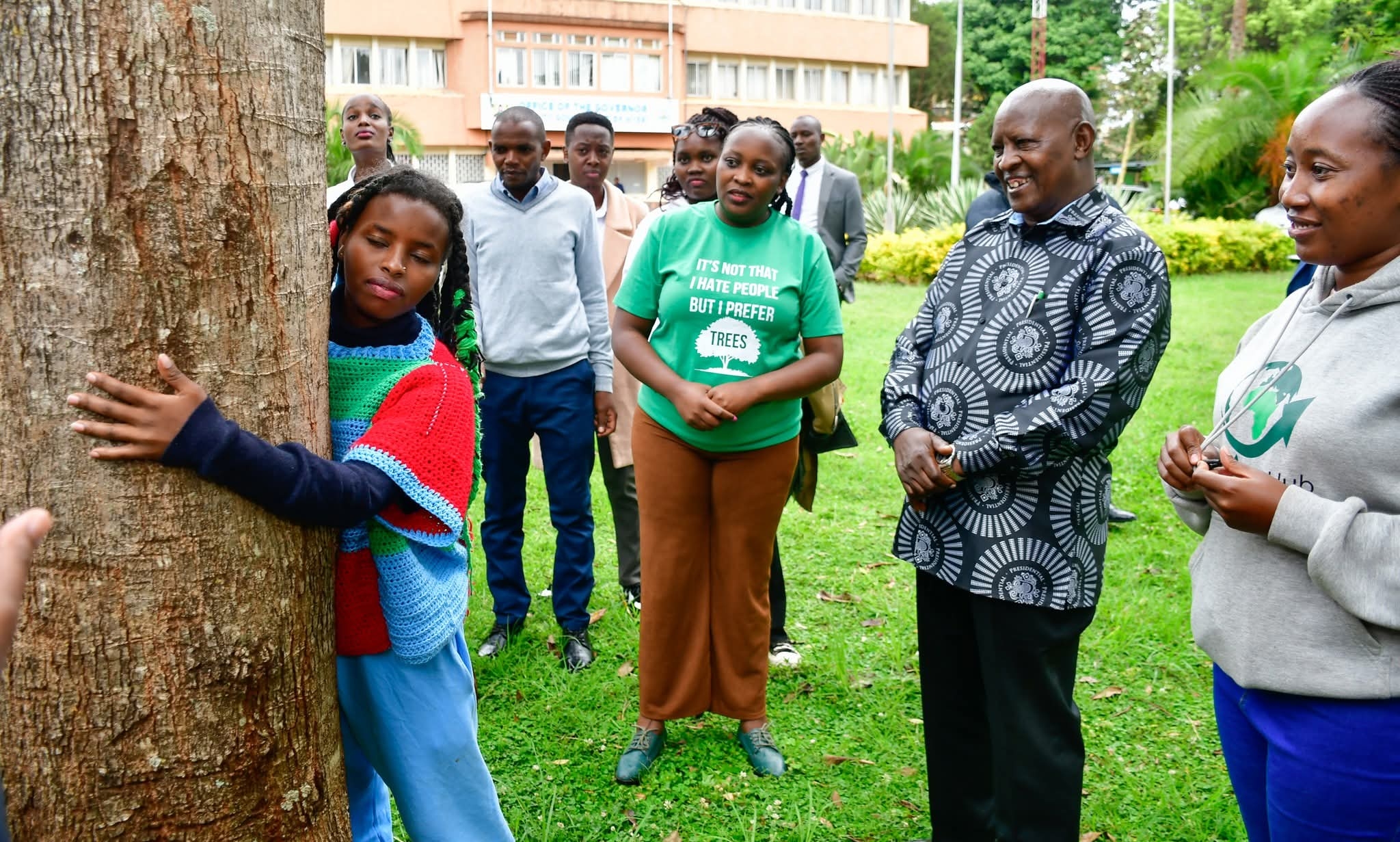If countryside towns were christened after queens for their beauty, Yala must be Cleopatra.
She is a palace, a museum, a library, a talisman, a picture and an epic poem with a river running through it. Yet she is never far from tragedy.
Yala, a small rural town in Siaya with 11,000 residents, reigns as the repository of Luo traditions and heritage that is slipping away. It's a cradle of ethnic learning.
Legend says it is home to the highest number of professors in the country; among them the first African lawyer Argwings Kodhek, eminent historian Bethwel Ogot, CS for Education George Magoha and top scientist David Masawo.
Not far from the Kisumu-Busia highway, Yala is known to saints and sinners alike through the Yala River, from which the town draws it name.
When Yala hit the headlines two weeks ago, she was painted as a heartless, desiccated village that harboured ghastly secrets and bodies dumped in the river. Many were murdered cruelly, weighted with stones and dropped in the river.
At least two had been wanted by the police. Police searched for two weeks and pulled up bodies, mostly decomposed.
Though it shocked the villagers to learn more than 20 bodies had been found in just three months— snagged on tree branches, wedged between rocks or decaying to nothing on the bottom — most people in Yala already knew something was wrong.
Now there are at least 25. Residents think there must be more.
In hushed tones, residents discussed how their source of livelihood was quickly becoming a graveyard. They live by growing maize, wheat and by mining a little gold.
It was surprising how many people who claimed to have seen the dead bodies being dumped into the river came out to tell their stories of seeing bodies dumped, burned, head wrapped in plastic bags, fingers cut off.
The Star set out to learn if dead bodies were common in the river, and why there was a tomb-like silence around the ghastly river catch all these years.
At 7am on Friday, January 28, when we landed the murky waters of River Yala swerved gently through green thickets, whistling in the wind on both sides of the 219km river, so beautiful.
As it flows through forests, the Yala River leaves behind a tranquil yet eerie feeling, a sense of mystery because we know what lies beneath the ripples.
Twenty-four bodies have been found to date, collected and stuck together at the Yala Subcounty Hospital mortuary with a capacity of 16 bodies.
Two have been claimed. One is from Murang'a, another from Uasin Gishu. Police say some were wanted men.
A boda boda rider, Austin Obiero, whom the Star asked for directions to the mortuary, offered to show us one more body the authorities had missed.
After a 10-minute ride, he led us through a narrow path with thorny, sticky bushes and broken reeds that opened onto the river.
On a dark rock left half exposed by the murky waters that were now running low, lay a huge, pale, male body, facedown, naked.
It lay basking in the hot January sun. The slow flowing waters gently awayed its lifeless hands and legs that were submerged halfway into the waters. It's a distressing sight and we cannot show you the pictures.
"People are beginning to talk openly about the many bodies recently seen in our river. This body, has been here for almost a week, it is impossible to ignore it," Obiero said.
Luo tradition dictates that if you see a human body in the river, you must look away, get out of the water and throw a branch or leaf to flow down the river with the body, emptying into Lake Victoria.
Kevin Odhiambo told us he had taken his cattle to the river to drink on Monday last week when he discovered that male body.
As the cows grazed in the nearby bushes, Odhiambo and his friends decided to take a swim. Then a huge wave hurled the body their way.
“Just as I dived in, the waves swiftly pushed a huge body towards me. I dashed out of the water, cut a twig from a nearby branch and threw it in his direction.
Mary Aketch, 103, is a custodian of Luo tradition and shed more light on the dark happenings. Though the tradition is slowly dying off, many still practice and Mary explains it.
She said if you saw a dead body, its spirit would expect you to rescue it from the river.
Because many people are scared or may not be able to pull the body out of the water, they toss in a leaf or twig to send away the spirit and let it flow away.
“A broken leaf was once alive, just like the body, that is why a leaf or branch is used,” she said.
If you see the body and inform other people, Aketch said, you are expected to pull it out of the river, tie it to a tree nearby and wait till the relatives are found.
“Such news would spread very fast and the entire village would help identify the body and find the kin. Meanwhile, you were expected to keep the spirit company day and night,” she said.
If the relatives were found, they would bring a cow, a sheep, and a chicken to the body.
The sheep would be slaughtered there and the blood left to flow into the ground to appease the spirits.
The person who found the body would be cleansed through drinking a traditional herb known as manyasi.
“He would then take a bath, leave the clothes he had by the river and get new clothes that he would wear home".
Back home, Aketch said the person who found the body was not to talk to anyone until he had slaughtered the chicken and let the blood drain to the floor of his compound. Then he could share the meat with his family.
“This was done to cleanse the entire family and drive the evil spirit away,” she explained.
The cow was a reward to the body-retriever for saving the spirit from the cold of the river.
However, in the event that after three nights no one claims the body, the person who dragged it onshore it was expected to bury it by the river.
“Your family would bring you a sheep and a hen for the rituals,” Aketch said.
“This tradition holds strong because it relates directly to the spiritual world. Generally, Africans fear dead bodies as we believe that the spirit remains alive even after death,” Aketch explained.
Jonathan Okite, a veteran body retriever, said he was Yala's only retriever and — until today — it was very rare to find bodies in the river, hence the elaborate tradition that has lasted for centuries. He retired and his son has taken over the family business.
"Even as the most renowned body retriever in river Yala, I never got more than three bodies in a year. Some years went by without anybody being seen," he said.
Okite admits that he could have possibly missed a body but affirmed that it was very unlikely.
"We used to mine inside the river Yala. We would dig gold for many hours inside the river, thus, we noticed many things that were carried away by the waters," he explained.
Okite strongly believes that if the rituals are not adhered to, the evil spirits from the dead will follow you or your family members.
"If, for whatever reason, the body retriever skipped the rituals, then some traditional ways of cleansing could be performed on them. Otherwise, you may not be totally normal or it may reflect in your children," he said.
He added, "If you have a child who is breastfeeding, he may get sick or even die. When you get intimate with your wife, you pass the spirits to her and she passes it to the child through breastfeeding."
As the children are older, if you hit them, Okite believes they will grow thin and never regain their weight.
The residents believe that the recent bodies were brought from elsewhere and dumped into the river.
Two weeks ago in january, Haki Africa CEO Hussein Khalid and human rights defender Boniface Mwangi posted a video stating that they counted a total of 21 bodies, two that were still floating in the river.
“At Yala mortuary, I saw 21 bodies. The morgue officials confirmed they buried nine bodies in October 2021 in a mass grave,” he said.
Most of the bodies, he said, bore torture marks. They were tied with ropes, polythene bags were on their heads and some had deep cuts. Some had rope marks around their necks.
Others had been weighted with heavy stones to keep them submerged, though with accumulated gases they eventually rise.
Most were decomposed beyond recognition.
These 24 bodies had been fished from the river in just six months and no one knew where they came from.
Residents only recalled a double-cabin and a Probox that dropped ‘packages’ into the river in the wee hours.
Police spokesperson Bruno Shioso had in a statement claimed there were only 19 bodies retrieved from the river in the past two years.
From July 2021, resident Okero Okite's son said he had removed a total of 37 bodies since July.
The search continues, pleas for people to come forward, DNA tests.
No one knows what River Yala is still hiding. Many people believe there are more bodies and the river will give up its secrets .
(Edited by V. Graham)
















